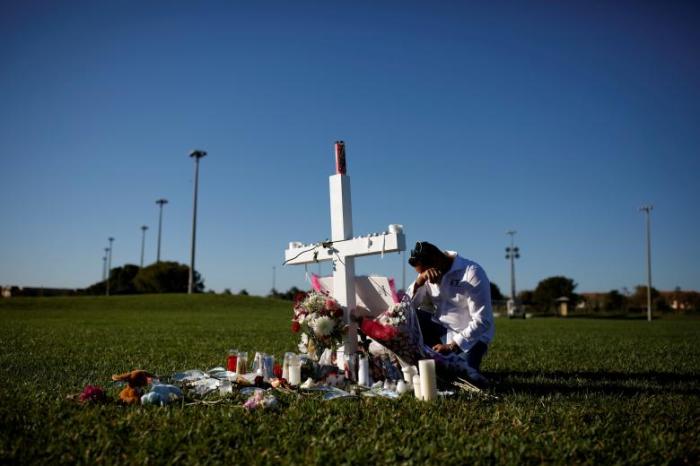Youth, Schools and Violence: Where Has Society Gone Wrong?

Read part 1, part 2, part 3, part 4, part 5, part 6 and part 7 of The Christian Post's series on youth and school violence.
As the United States has by far more deadly shootings occurring in its schools than any other developed nation, many are left wondering if there are elements of today's American society that are partially to blame, or at least play a factor, when it comes to the troubling influx of deadly school massacres.
"Where has our society gone wrong?" some might ask.
Dr. Peter Langman, an expert on the psychology of school shooters who runs the database SchoolShooters.info, told The Christian Post that in the U.S., "We have overwhelmingly the majority of school shootings in the world."
The million-dollar question is "why?"
There isn't just one easy answer to that question nor is there only one solution, Langman and others who spoke with CP asserted.
A common response, however, which was echoed by two experts interviewed for this article, is the fact that there is much more access to guns in the U.S. than any other nation.
"I did this study of 171 countries to explain statistically why the United States has more [mass shootings] than any other country. I coded any variable that was present for all 171 countries [studied]. I looked at homicide rates, suicide rates, national wealth, firearm ownership rates," said Adam Lankford, associate professor at the University of Alabama's Department of Criminology and Criminal Justice.
"By far, the most statistically significant relationship was between number of firearms per civilian and number of mass shootings per country."
However, Lankford stressed that there are also other influences when it comes to the number of mass shootings and school shootings. Another factor, he said, is the unintentional motivation that the media provides to individuals looking for fame and infamy.
What Role Does the Media Play?
"There is a lot of research that suggests that Americans care more about being famous and are more commonly worshiping celebrities than other countries," Lankford said. "That is very applicable to the mass shooting problem because we know that a high percentage of mass shooters, particularly the deadliest mass shooters, are often seeking fame."
"I think some people would say that it is the notion of the American dream. The idea that a nobody can become a somebody. This idea of upward mobility. Those are all good things. Traditionally that means rising in class — in other words, someone who is poor can become rich. In the last few decades, instead of people thinking of money as the ultimate form of success it has transitioned to fame being the ultimate form of success."
Lankford said that the desire for fame has led to a troubling trend of copycat behavior in which mass shooters and school shooters witness the notoriety that previous perpetrators received from various forms of media and want to achieve similar status.
"Because of the general celebrity worship in our culture, you have kids who idolize a famous professional athlete or a famous singer. Even people look at reality stars and say, 'That person doesn't have any exceptional talent, why can't I be as famous as that person?'" he explained. "We actually see that if we look closely to a lot of these cases of copycat behavior that there are similar forms of celebrity worship going on."
It is common for the names and photographs of school shooters to be plastered in newspapers and on news channels throughout the country in the days following horrific school shootings.
Lankford joined 148 other academic experts in issuing an open letter last year calling on media organizations to stop publishing the names and photographs of school shooters, except during ongoing searches for escaped suspects.
Lankford and Eric Madfis, associate professor of Criminal Justice at the University of Washington Tacoma, wrote a research article last September published by American Behavioral Scientist that contains recommendations for news outlets.
The article states that because many attackers "explicitly admit that they want fame and directly reach out to media organizations to get it, it has become essentially indisputable that as a society, we have been helping them achieve their goals."
According to the paper, Lankford has documented at least 24 "examples of offenders who clearly exhibited this motive."
One such case was the 2012 Sandy Hook Elementary School shooting in which the 20-year-old perpetrator was "obsessed with movies about mass shooters, wrote about 'my catalog of mass murderers,' participated in online debates about which was the 'the most famous school shooting,' and posted 'just look at how many fans you can find for all different types of mass murderers.'"
A total of 26 were murdered in the Sandy Hook shooting.
"What the media has been doing unfortunately, is they have been advertising mass shootings and high-profile mass shooters," Lankford told CP. "Go ahead and cover these incidents in as much detail as necessary. But don't publish the photos and don't publish the names. In the same way, if there is a sexual assault victim, you would not publish her name. It is a different scenario but in both cases you would be remitting what you publish for public health reasons."
Justin Nutt, a clinical therapist and consultant from Kansas who now resides in Texas, agreed with the notion that notoriety plays a large role.
"You may be famous for a bad thing and you may not be around to see it, but the world is going to know who you were," Nutt explained. "Notoriety is a big thing and I think it always has been. I think that is one of the biggest causes from a society standpoint."




























